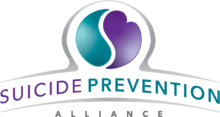Training & Programs
Suicide Prevention Alliance believes that if we provide education concerning suicide prevention to all walks of life within the community, we can save lives from suicide, reduce the stigma and support those who have been impacted by suicide. Suicide Prevention Alliance offers several evidence-based trainings and programs.
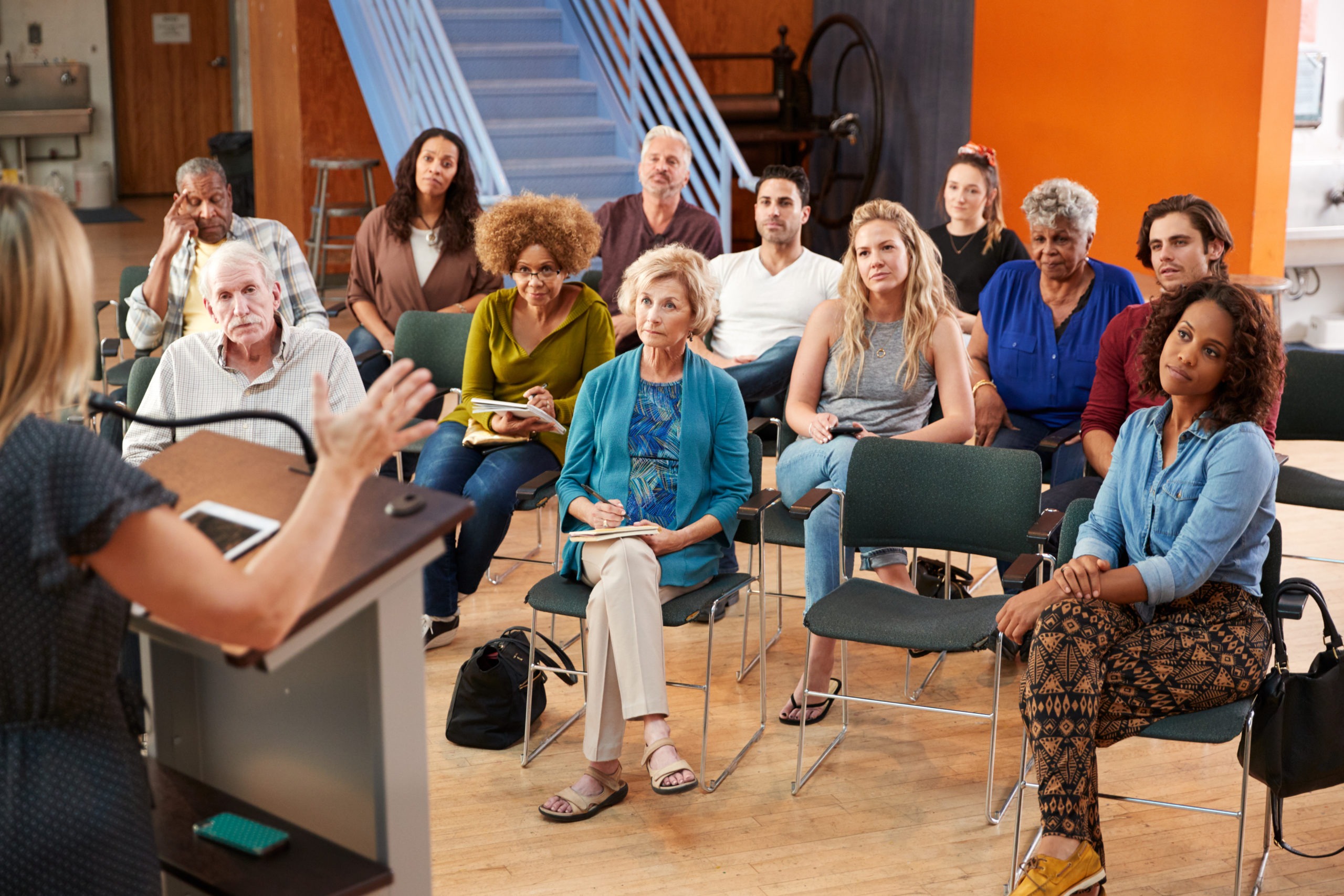

QPR Gatekeeper Training - Three simple steps that can save a life.
QPR (Question, Persuade, and Refer) Gatekeeper Training - QPR stands for Question, Persuade & Refer and is an evidence-based suicide prevention training created by the QPR Institute. This training is designed to teach individuals with/without professional mental health backgrounds to recognize the warning signs and risk factors of a suicide crisis, persuade the person in crisis to get professional help, and refer to the proper resource(s). It is recognized as a best practice by the Suicide Prevention Resource Center (SPRC).
QPR Gatekeeper Trainings
Training can be conducted in as little as an hour and a half (1 ½) up 2-3 hours. The training can also be expanded to include other topics such as self-harm, depression, and can be tailored for specific populations or professions. A "Gatekeeper" is someone in a position to recognize a crisis and the warning signs that someone may be contemplating suicide. Gatekeepers include parents, friends, neighbors, teachers, ministers, doctors, nurses, office supervisors, squad leaders, foremen, police officers, advisors, caseworkers, firefighters, and many others who are strategically positioned to recognize and refer someone at risk of suicide.
According to the CDC (Center for Disease Control), over 49,000 people die each year by suicide, and it is estimated that over 1.8 million attempt suicide nationally. Most suicides are related to both mental illness (depression) and circumstances occurring in ones life (relationship issues, substance use, financial issues, etc.). Yet many people don't seek help. Each year, thousands of Americans become Gatekeepers and learn how to help save a life.
Suicide Prevention Alliance also offers QPR Instructor Training:
QPR Gatekeeper Instructor Training - Trainer Certification Course
Becoming a certified trainer of QPR’s industry-leading approach to suicide prevention is an excellent way for individuals and organizations to help empower their communities to effectively intervene on behalf of suicidal and in-crisis people.
You will be able to train QPR Gatekeeper training - Training participants to teach QPR Gatekeeper Training for Suicide Prevention - Understanding the nature and range of suicidal communications - Knowing the groups at greatest risk of suicide and why QPR can work for them - Suicide and suicide prevention in history - Gatekeeper training; how, why and the research - New and promising approaches to suicide prevention - How QPR fits into national efforts.

Applied Suicide Intervention Skills Training (ASIST)
ASIST is the world’s leading suicide intervention training. ASIST stands for Applied Suicide Intervention Skills Training and is the only workshop of its kind. ASIST is constantly being updated to continually reflect new knowledge with suicide prevention. ASIST is a two-day face-to-face workshop featuring powerful audiovisuals, discussions, and simulations. At an ASIST workshop, you'll learn how to prevent suicide by recognizing signs, providing a skilled intervention, and developing a safety plan to keep someone alive. Two knowledgeable, supportive trainers will guide you through the course, ensuring a comfortable and safe learning environment. ASIST aims to teach caregivers the necessary skills to provide emergency psychological first aid in situations involving suicidal behavior. The emphasis of the ASIST workshop is on suicide first aid, on helping a person stay safe and seek further help.
- Trainee skills and readiness are improved
- No adverse effects from training for trainees
- Interventions have shown to increase hope and reduce suicidality
- Training has shown to increase general counseling and listening skills
- Saving lives and costs have yielded a return on investment of up to 50:1

safeTALK
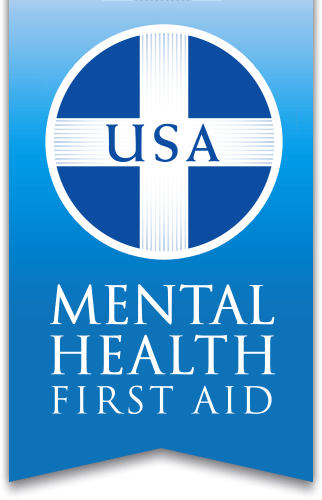
Mental Health First Aid
Mental Health First Aid is a public education program that introduces participants to risk factors and warning signs of mental illnesses, builds understanding of their impact, and overviews common supports. This 8-hour course uses role-playing and simulations to demonstrate how to offer initial help in a mental health crisis and connect persons to the appropriate professional, peer, social, and self-help care. The program also teaches the common risk factors and warning signs of specific types of illnesses, like anxiety, depression, substance use, bipolar disorder, eating disorders, and schizophrenia. Mental Health First Aid is included on the Substance Abuse and Mental Health Services Administration’s National Registry of Evidence-based Programs and Practices (NREPP).
Course Details
The course teaches participants the risk factors and warning signs of a variety of mental health challenges common among adolescents, including anxiety, depression, psychosis, eating disorders, AD/HD, disruptive behavior disorders, and substance use disorder. Participants do not learn to diagnose, nor how to provide any therapy or counseling – rather, participants learn to support a youth developing signs and symptoms of a mental illness or in an emotional crisis by applying a core five-step action plan:five-step action plan, ALGEE, to support someone developing signs and symptoms of a mental illness or in an emotional crisis:
- Assess for risk of suicide or harm
- Listen nonjudgmentally
- Give reassurance and information
- Encourage appropriate professional help
- Encourage self-help and other support strategies
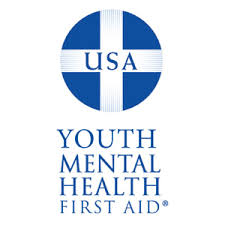
Youth Mental Health First Aid
Youth Mental Health First Aid is an 8 hour public education program which introduces participants to the unique risk factors and warning signs of mental health problems in adolescents, builds understanding of the importance of early intervention, and teaches individuals how to help an adolescent in crisis or experiencing a mental health challenge. Mental Health First Aid uses role-playing and simulations to demonstrate how to assess a mental health crisis; select interventions and provide initial help; and connect young people to professional, peer, social, and self-help care.
Who Should Take The Course
The course is designed for adults who regularly interact with adolescents (teachers, school staff, coaches, youth group leaders, parents, etc.), but is being tested for appropriateness within older adolescent groups (16 and older) so as to encourage youth peer to peer interaction.
What Will Participants Learn?
The course teaches participants the risk factors and warning signs of a variety of mental health challenges common among adolescents, including anxiety, depression, psychosis, eating disorders, AD/HD, disruptive behavior disorders, and substance use disorder. Participants do not learn to diagnose, nor how to provide any therapy or counseling – rather, participants learn to support a youth developing signs and symptoms of a mental illness or in an emotional crisis by applying a core five-step action plan:
- Assess for risk of suicide or harm
- Listen nonjudgmentally
- Give reassurance and information
- Encourage appropriate professional help
- Encourage self-help and other support strategies
The Youth Mental Health First Aid USA curriculum is primarily focused on information participants can use to help adolescents and transition-age youth, ages 12-18.
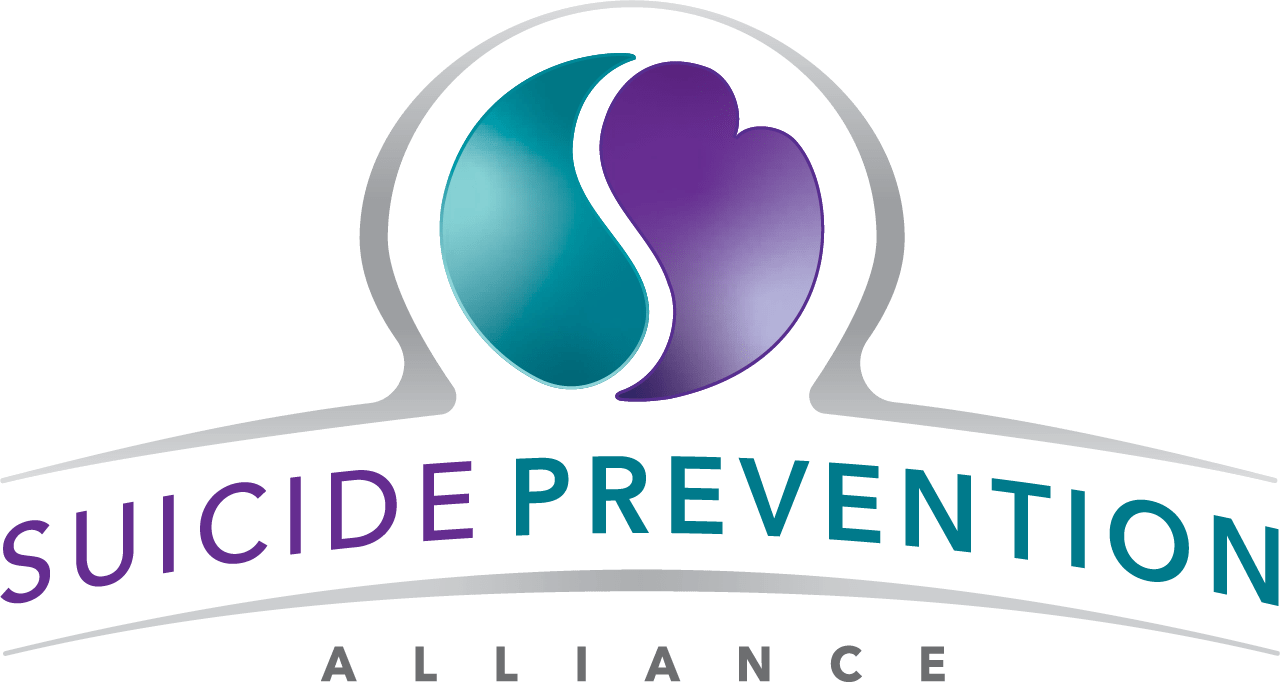
Additional Information
Who We Are
Suicide Prevention Alliance is a 501(c)3 nonprofit organization that helps people who are in need of preventative suicide assistance
